LSA Duct Fraud P. 5, LSAs and Brand Queries, Google's Scrollable Map, App Store Vault Cracks

LSA Duct Cleaning Fraud Gets Real - Part 5
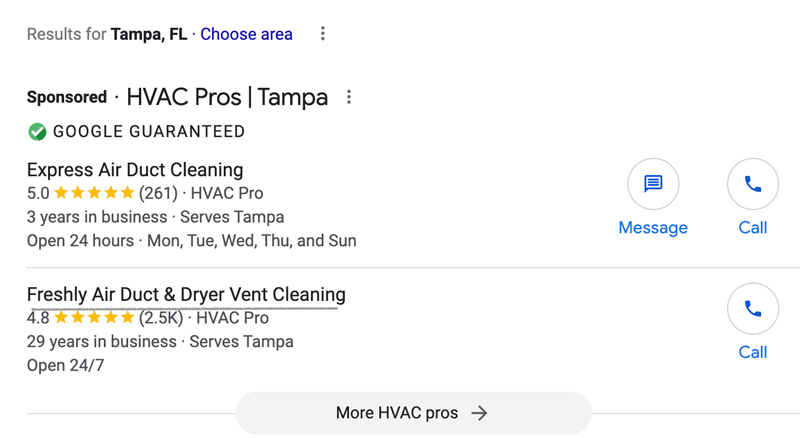
The consumer and business harms of the LSA Duct Cleaning scam are becoming more obvious. Google did remove one of the LSA scam listings in Florida but another, Freshly Air Duct & Dryer Vent Cleaning, has risen to the top of search results across most urban markets of Central, South & West Florida. To get approved for LSAs, these scammers have stolen the business licenses of local contractors. When I call these contractors with details of the scam, they think I am a nutcase (point taken). But StyleCrest, an HVAC contractor across Florida whose license is being used by Freshly Air scammer, had weeks earlier received a review accusing them of just such fraud. Originally thinking it was a fired employee, they were shocked to learn of the scam. Another victim surfaced yesterday and StyleCrest encouraged them to report the scam to the police who didn't just ignore them, but lectured them to the point of defending the scammers. Google's failure to adequately address the scam, fueled by the Google Guarantee, has created a dangerous environment for consumers seeking reliable local services. The company's negligence and lack of effective safeguards have enabled fraudulent businesses to thrive, leading to consumer losses and putting real businesses at risk.
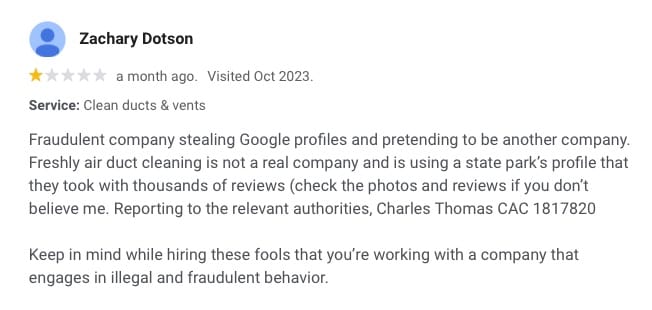
Our take:
- The Duct Cleaning scam has been circulating on Facebook for awhile. Recently the AG of Michigan alerted their residents about it. But Google's LSA, with their "guarantee" and reach, allowed scammers to take this to a new level.
- Local authorities are not interested in this scam nor capable of doing anything, despite the fact that there is an in-person element to it.
- Google has known about this scam for awhile and apparently done nothing to stop it. It is past time for Google to pull the plug.
Google at 25: Just a Rent Seeker?
Google Local Service Ads were originally designed to increase consumer trust and provide an effective and simple pay-per-lead search product to small service businesses. Early on these ads provided great ROI and businesses loved them. Our research shows that consumers love LSAs as well. These ads effectively redirect traffic away from both the Local Pack and organic at an aggressive clip. In our research, when LSAs appeared, Local Pack/Finder usage dropped from 33% of searches to 18%, turning local traffic into Google income. Last week we noted the lack of legally required disclosures on the ads. Yet Google, in what seems the classic definition of rent seeking, seems intent squeezing LSAs even more by showing them on brand searchers. These ads cost ~$40-45. According to Tom Waddington LSAs are showing more frequently on brand queries and a business cannot turn this "feature" off. That is a lot to pay for a consumer who was going to call you anyway.
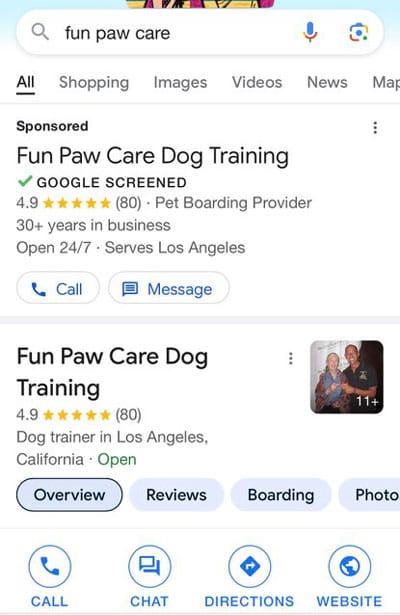
Our take:
- Google shouldn't show LSA ads for brand searches unless a business explicitly opts in.
- For the past number of years we have seen Google redirecting traffic internally. With LSA and SGE that trend is likely to accelerate in the future.
- When Google started out, 25 years ago, it totally disrupted the internet through innovation. Now Google has descended into rent seeking.
Do Users Interact with Google's Scrollable Map?
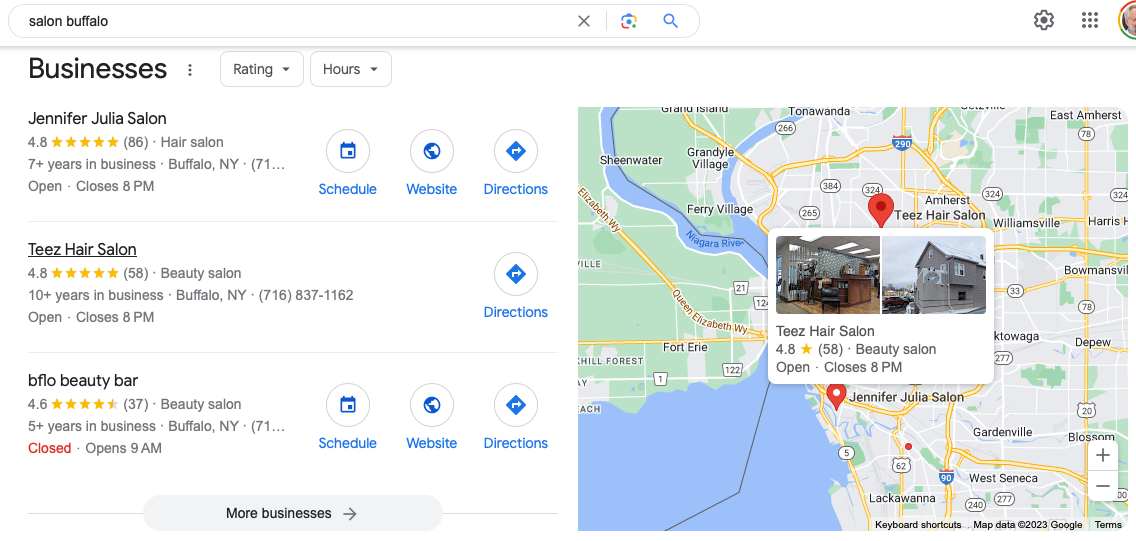
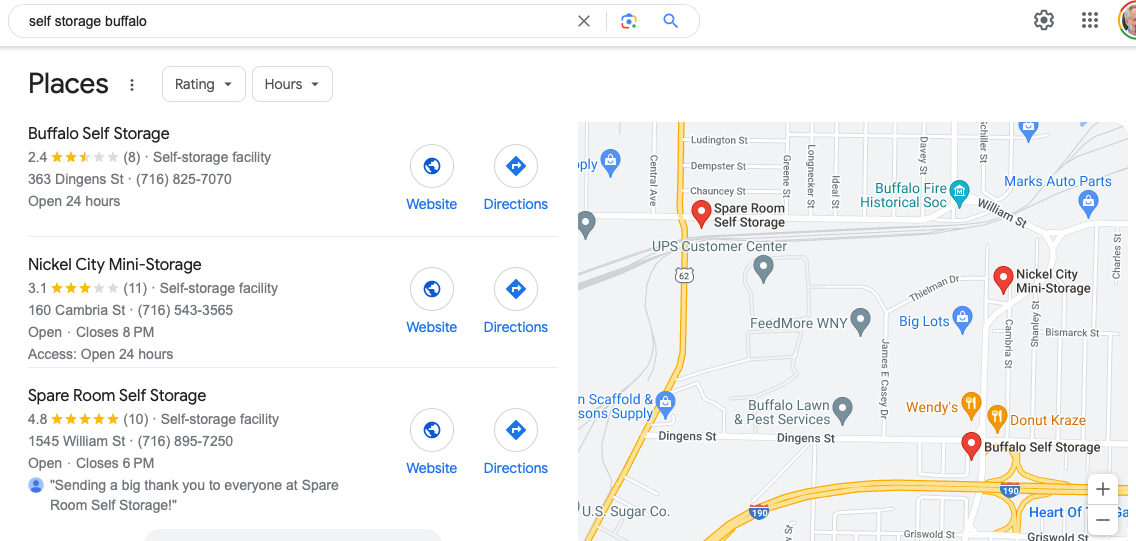
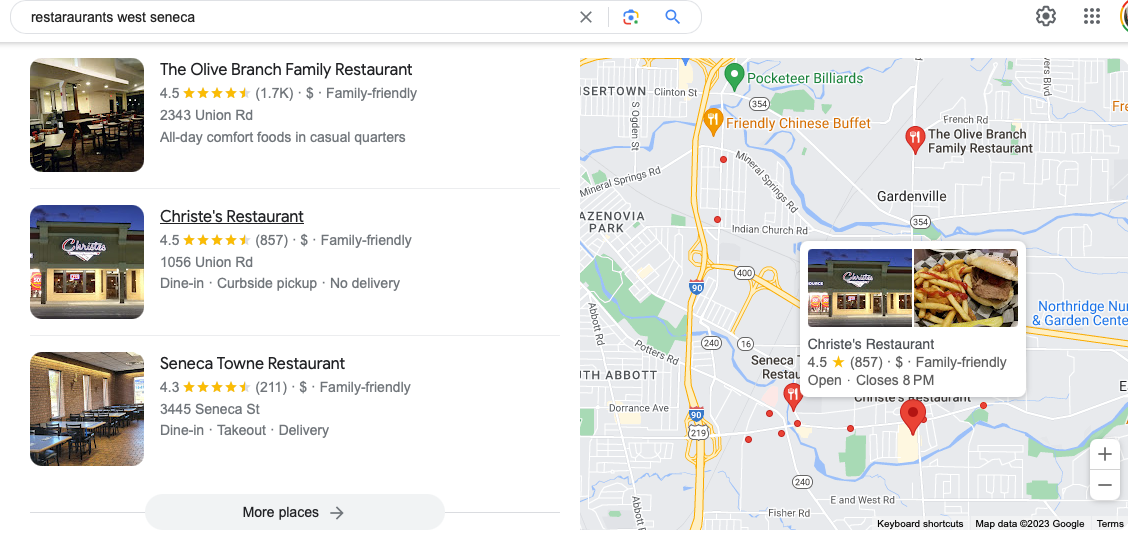
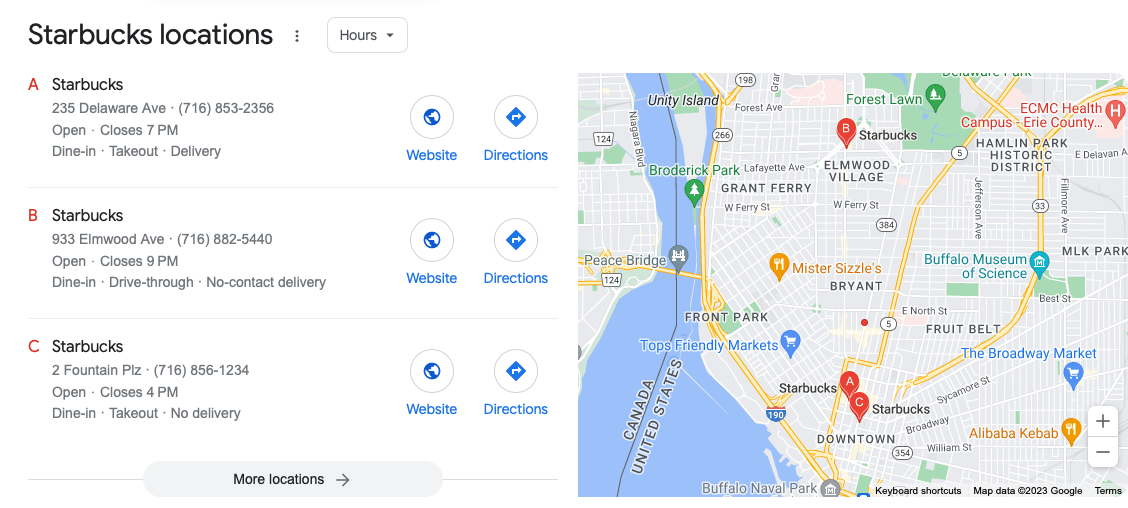
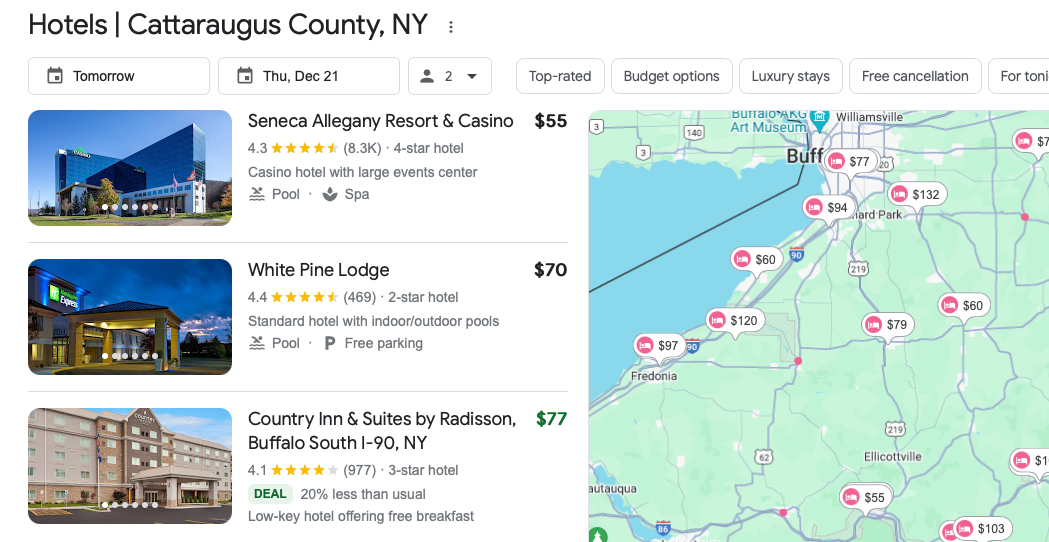
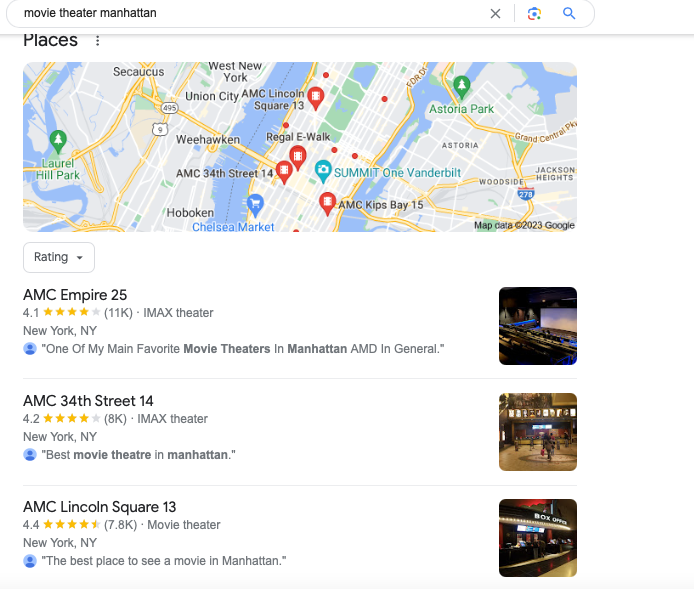
Google recently finalized the rollout of the new Local Pack interface showing listings to the left of the Map. In testing since July, the new UI allows users to instantly scroll into the map to search a different location. The new Pack changes depend on the specific search and offer different details and calls to action. Hotels retained its unique Local Pack and some Local Packs (e.g., local product searches and theaters) retain the older Maps-at-the-top style. Google doesn't always geolocate users correctly by default. Where users are more likely to be location-sensitive Google shows the new interface. I found the change annoying but in a recent research project we saw a noticeable number of users interact fluidly with the UI to find businesses located closer to them.
Our take:
- The new interface throws the concept of rank totally out the window. Users will scroll around the Map to locate alternative or additional choices.
- In some categories, like storage, proximity trumps almost any other consideration.
- As Google moves toward increasing personalization, it's critical marketers and businesses understand user behavior. The old adage "location, location, location," as the most important consideration, remains very much the case.
App-Store Monopolies Break
App store monopoly days are over for Google, and soon Apple too. Last week a jury handed Google a big defeat, finding that Google Play was an illegal monopoly. Specific remedies are yet to be determined. However, that may be effectively unnecessary because of a $700 million settlement in a long-running case brought by US State Attorneys General over Google Play. The settlement was originally announced in September but little was known about it at that time. Under its terms Google must do two major things: allow user-choice billing and support “sideloading.” In other words, Android users will be able to pay for in-app purchases through third party channels and not just Google Play (where Google takes a 30% cut). The company will also have to make it easier for consumers to download apps from independent app stores. The $700 million will be divided between Android users and the states; $630 million will go to consumers and the remainder to the state litigants. As a practical matter, consumers will receive relatively little on an individual basis (<$10). This deconstruction of app store monopolies is also happening in Europe and elsewhere around the world.

Our take:
- These events together represent a win for developers and app publishers. However, it’s likely that Google Play will remain the dominant channel for Android app downloads.
- Apple prevailed in a similar lawsuit with Epic, but the Google verdict and settlement mean Apple will eventually face a reckoning. Apple makes billions in app-store commissions today.
- Google’s upbeat blog post spins the settlement as a win for consumer choice and innovation. But it’s clear they wouldn’t have done any of this voluntarily.
Recent Analysis
- Near Memo episode 139: Google Review Fraud Landscape in Maps & LSA, and How a Business Should Respond - Interview with Curtis Boyd
- ICYMI: Convo with Joy Hawkins & Darren Shaw: How Local SEO Agencies Are Using Generative AI & ChatGPT
Short Takes
- Check your GBP for who has access or risk GBP account suspension.
- Missing GBP image stats? You can find them in you know how.
- Integrating GA4 with Third-Party Booking Platforms.
- Researchers use AI to rank better in AI search by citing sources, adding quotations and using statistics.
- Google’s Search Generative Experience (SGE) now showing for 84% of search queries in three main forms.
- Local link building tips from Gyi Tsakalakis (Twitter).
Listen to our latest podcast.

How can we make this better? Email us with suggestions and recommendations.

